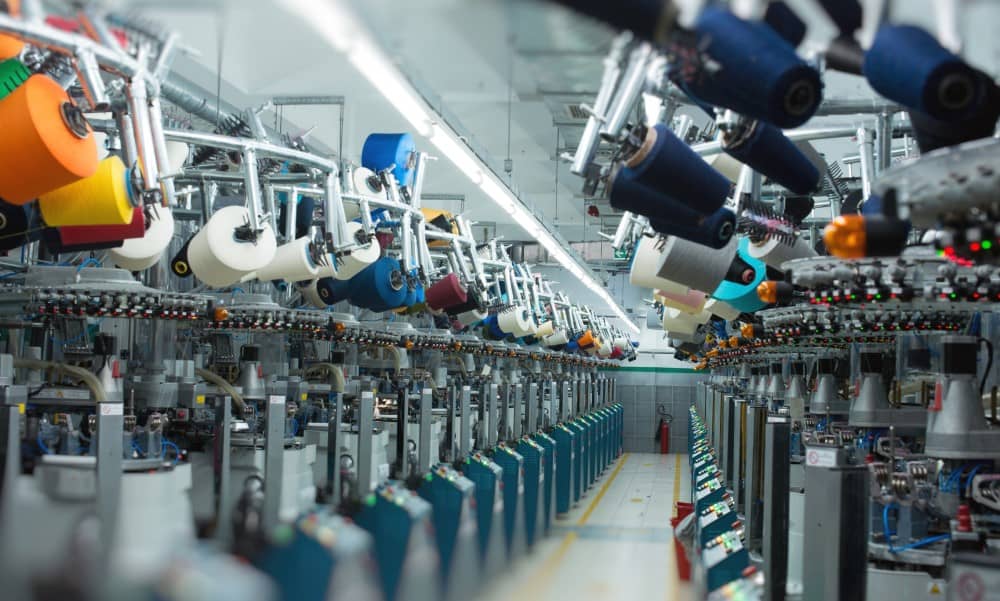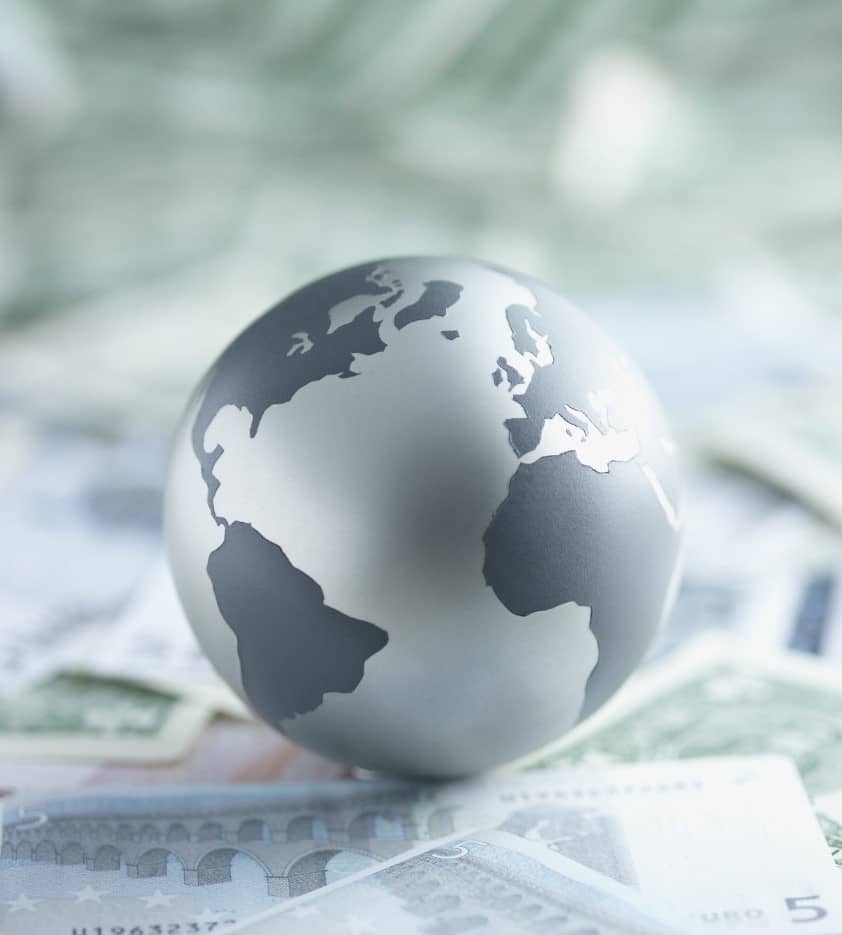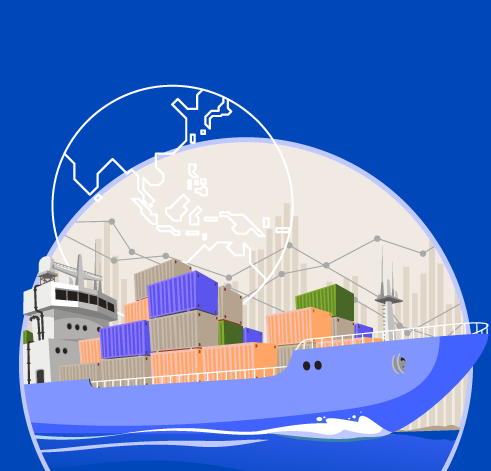Vietnam is strategically positioning itself to capture the next wave of FDI investment, as global capital increasingly shifts towards high-value added industries and emerging markets with strong growth trajectories. This is a pivotal chance for Vietnam to capitalize on emerging opportunities and position itself as an attractive destination for foreign investment, driving sustainable economic growth.
What is FDI capital?
FDI stands for Foreign Direct Investment - capital that flows from one country or external territory into another. This investment typically takes the form of setting up manufacturing facilities, opening business branches, making equity contributions, or acquiring shares in local companies.
Although the main goal of FDI capital is often to expand markets and generate profits by leveraging advantages in host countries, its contributions to recipient nations - especially developing economies like Vietnam - are undeniably significant.
The Evolution of FDI Capital Flows
Macroeconomic shifts are fundamentally reshaping global FDI flows. While the initial COVID-19 led to a temporary slowdown, it simultaneously accelerated digital transformation across economies. This momentum has laid the foundation for a structural reallocation of FDI, with an increasing proportion of capital now directed toward technology-driven sectors. Unpredictable trade policies - such as the reciprocal tariffs introduced during the Trump administration - have underscored the volatility and risk inherent in global trade. Combined with escalating tensions between the U.S. and China, these developments have amplified tariff pressures and prompted FDI enterprises to diversify their operations to more stable markets near China. This approach, commonly referred to as the "China +1" strategy, reflects a broader shift toward supply chain resilience and geopolitical risk mitigation.
As global investment strategies evolve, FDI flows are increasingly concentrated in high-tech industries, artificial intelligence (AI), and clean energy solutions. These sectors not only offer long-term growth potential but also support efforts to reduce over-reliance on any single market while enhancing operational resilience and strategic flexibility.

New-generation FDI capital often includes high-tech projects involving AI applications.
The expectations placed on FDI destination countries are rising in both scope and complexity. High-quality human capital is essential to meet the demands of advanced industries and the operational standards of global enterprises. Legal frameworks and policy incentives must be transparent, efficient, and aligned with international norms which enable businesses to swiftly capitalize on emerging opportunities. In addition, infrastructure must be developed in a synchronized manner, supported by robust logistics networks and compliance with ESG standards. Crucially, in an era marked by geopolitical tensions that can disrupt business continuity, countries offering political stability, safety, progressive economic reforms, and strong growth prospects are increasingly prioritized by global investors.
A recent business environment survey by the European Union Chamber of Commerce in China (1) found that nearly half of surveyed companies reported their Chinese suppliers were relocating operations. Additionally, 10% of businesses are actively building alternative supply chains abroad while retaining current networks in China. FDI inflows into China have declined sharply. In 2020, China attracted $253 billion in FDI, surpassing the U.S. as the world’s top recipient. However, by 2024, this figure dropped to $113.4 billion - a 27% decrease compared to 2023. In January 2024 alone, FDI reached just $13.4 billion, down 13% year-on-year (2). These figures underscore the growing momentum of the "China +1" strategy. As a neighboring country with rising competitiveness and strategic location, Vietnam is well-positioned to capture a substantial share of this redirected FDI capital.
Vietnam - A Strategic Regional Advantage
To strategically position within the evolving global capital landscape, Vietnam is proactively refining its FDI strategy. This forward-looking approach is designed to accelerate economic transformation, avoid the middle-income trap, and support the nation’s ambitious target of 8% economic growth by 2025 (3). Beyond this milestone, Vietnam aims to sustain double-digit growth in the coming years - anchored by high-value investments, industrial upgrading, and deeper integration into global value chains. The country is undergoing a strategic transition from traditional, low-value-added manufacturing toward high-tech, innovation-driven, and environmentally sustainable investments. The government is prioritizing sectors such as artificial intelligence (AI), semiconductors, and green industries - each deeply integrated into global value chains – to enhance competitiveness, attract quality capital, and position the country as a key player in the next wave of industrial transformation.
In parallel, the Vietnamese government is advancing institutional reforms to build a more streamlined, and efficient state apparatus. Enhanced legal frameworks, targeted tax incentives and upgraded industrial park infrastructure are designed to facilitate technology transfer, strengthen collaboration between domestic and foreign enterprises, and deepen the integration of local businesses into global supply chain. Key policy initiatives include Resolution 57-NQ/TW on science, technology, and digital transformation, and Resolution 59-NQ/TW on international integration. These will act as catalysts in attracting next-generation FDI.
Vietnam also leverages a strong and expanding trade network, anchored by 17 free trade agreements (FTAs), including next-generation accords like the CPTPP, EVFTA, and RCEP(*). Coupled with a stable political environment and favorable monetary conditions – including low interest rates – these factors collectively position Vietnam as one of the most attractive destinations for foreign investment in the region. According to the Ministry of Finance (4), Vietnam attracted $4.96 billion in FDI during the first quarter of this year - a 7.2% increase year-on-year and the highest in five years. May marked a pivotal moment, as President Donald Trump's reciprocal tax policies sent shockwaves through global investment markets. Despite this turbulence, Vietnam’s FDI performance remained resilient. While newly registered capital reached just over $7 billion, reflecting a 13% year-on-year decline, the volume of adjusted capital saw a notable increase, signaling continued investor confidence and commitment to long-term operations in the country. "The number of new investment projects, adjusted capital projects, and capital contribution/share purchase transactions all increased, demonstrating that foreign investors' confidence in the domestic investment environment continues to be strengthened, as they are not only making new investments but also expanding existing operations," stated the Foreign Investment Agency, Ministry of Finance. (4)
(*) FTA (Free Trade Agreement):
Free Trade Agreements (FTAs) are deals between two or more countries that aim to eliminate tariffs on goods traded among them. Today’s new-generation FTAs go further than just lowering taxes. They set higher standards and broader commitments - covering areas like environmental protection, intellectual property, sustainable development, and more. These agreements are a powerful push toward open and fair trade across member countries. For businesses, new-generation FTAs open the door to global opportunities - helping boost exports and attract valuable FDI to Vietnam. They also encourage companies to step up their game and stay competitive in a fast-changing market. Some of the most impactful FTAs are: Comprehensive and Progressive Agreement for Trans-Pacific Partnership (CPTPP), EU–Vietnam Free Trade Agreement (EVFTA), Regional Comprehensive Economic Partnership (RCEP)

FDI capital channeled into Vietnam's textile and garment industry consistently accounts for a substantial proportion.
Despite its many strengths, Vietnam still faces several obstacles. Transport infrastructure is inconsistent and underdeveloped, contributing to higher logistics costs. Administrative procedures, while improving, still need streamlining. The country’s transition to green energy is hindered by legal and technological limitations, potentially affecting enterprises’ adherence to ESG commitments. A shortage of high-tech labor also poses a challenge to advanced industries.
To navigate these complexities, FDI enterprises must have a deep understanding of the Vietnamese market. Fortunately, professional advisory services are readily available. Despite existing challenges, foreign investors can still easily access to specialized financial advisory services tailored for FDI enterprises in Vietnam. For many years, UOB Vietnam has played an active role in supporting investors by offering comprehensive services such as tax and cost advisory, initial legal procedures, site selection, human resources strategy, and guidance for mergers and acquisitions involving FDI-backed businesses.
More Than a Temporary Trend
Vietnam’s nearly four-decade FDI journey has been marked by a steady growth, increasingly meaningful contributions to the national economy, and growing investor trust. It’s not just about capital inflows - it’s about long-term development. This is not merely an aspiration of FDI enterprises but a key goal for the Vietnamese Government. As shared by Mr. Lim Dyi Chang, Country Head of Commercial Banking, UOB Vietnam, at the 5th Vietnam Connect Forum 2025 in April.(5) "The success of an FDI strategy should not be measured solely by the volume of capital attracted, but more importantly, by the effectiveness it delivers. This includes enhancing industrial capacity, fostering community development, promoting technology transfer, and contributing positively to the sustainable growth of the region.”
In the context of shifting FDI capital flows to other countries, differences in language, culture, service quality requirements, technology, and considerations related to sustainable and green development can present immediate obstacles that FDI enterprises must overcome. Many FDI enterprises prefer to partner with banks that have an established presence in the host country to access specialized financial and advisory services - critical pillars for their long-term growth. These institutions not only provide capital and help manage financial operations efficiently, including mitigating foreign exchange risks, but also offer value-added services such as cross-border investment consulting, supply chain integration, green finance solutions, and support for ESG and sustainable development goals.
Recognizing these evolving needs, UOB Vietnam has been a pioneer in FDI advisory since 2011, establishing a dedicated unit to serve foreign investors. Over the past decade, more than 4,500 companies have leveraged UOB Vietnam's expertise to expand their operations internationally, particularly across ASEAN. Specifically in Vietnam, our FDI advisory unit has supported approximately 340 companies in entering and scaling within the market over the last five years. In 2015, UOB Vietnam and the Foreign Investment Agency, under the Ministry of Planning and Investment (now the Ministry of Finance), signed their inaugural Memorandum of Understanding, which was subsequently renewed in 2020. This collaboration aims to bolster FDI and trade between Vietnam and Southeast Asia. From 2015 until the end of 2022, we successfully assisted over 250 FDI enterprises in entering Vietnam, contributing to the creation of approximately 53,000 job opportunities and facilitating investment flows exceeding SGD 5.8 billion into the country. Concurrently, UOB Vietnam has become a strategic partner for the Vietnamese Government in promoting FDI.
With a network of 500 branches operating across 19 countries, combined with our robust capabilities and extensive experience, UOB Vietnam is consistently able to deliver the most professional solutions to our clients. These range from supporting FDI enterprise acquisition and merger transactions to providing tailored advisory services in finance, taxation, legal matters, suitable financial products, and integrated solutions to help large businesses optimizing their investment strategies and managing their cash flow effectively in Vietnam. Beyond our comprehensive suite of services, we also offer preferential funding options for FDI enterprises, coupled with optimized international payment solutions. This commitment contributes to enhancing the quality of FDI into Vietnam, aligning with green, technological, and sustainable development objectives, and actively contributing to the regional value network.
With support from financial partners like UOB Vietnam, FDI enterprises can fully seize this opportunity to expand their businesses, achieve sustainable growth, and successfully navigate the various challenges prevalent in the current economic landscape.
Contact us for further support and consultation
UOB Vietnam provides tailored solutions for business requirements for current FDI adaptation.
This article shall not be copied, distributed or used by any individual or organization for whatever purpose. This article is given for reference only, non-binding and is strictly for information only. The information contained in this article is based on certain assumptions, information and conditions available as at the date of the article and may be subject to change at any time without notice. You should consult your own professional advisers about the issues discussed in this article. Nothing in this article constitutes accounting, legal, regulatory, tax or other advice. This article is not intended as an offer, recommendation, solicitation, or advice to purchase or sell any investment product, securities or instruments.
United Overseas Bank (Vietnam) Limited and its employees have made reasonable efforts to ensure the accuracy and objectivity of the information contained in this article, however, no representation or warranty, whether express or implied, is given as to its accuracy, completeness and objectivity and accept no responsibility or liability for any error, inaccuracy, omission or any consequence or any loss or damage howsoever suffered by any person arising from any reliance on the views expressed and the information in this article.











